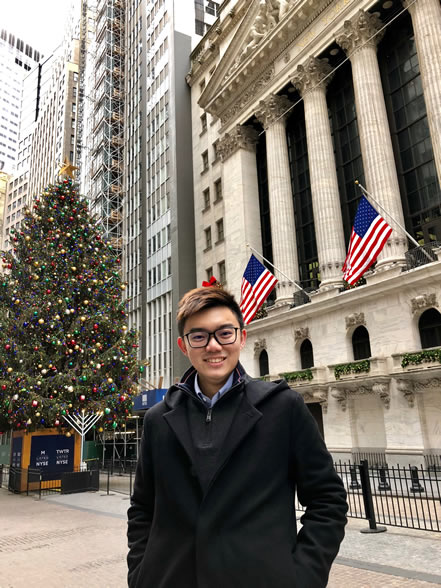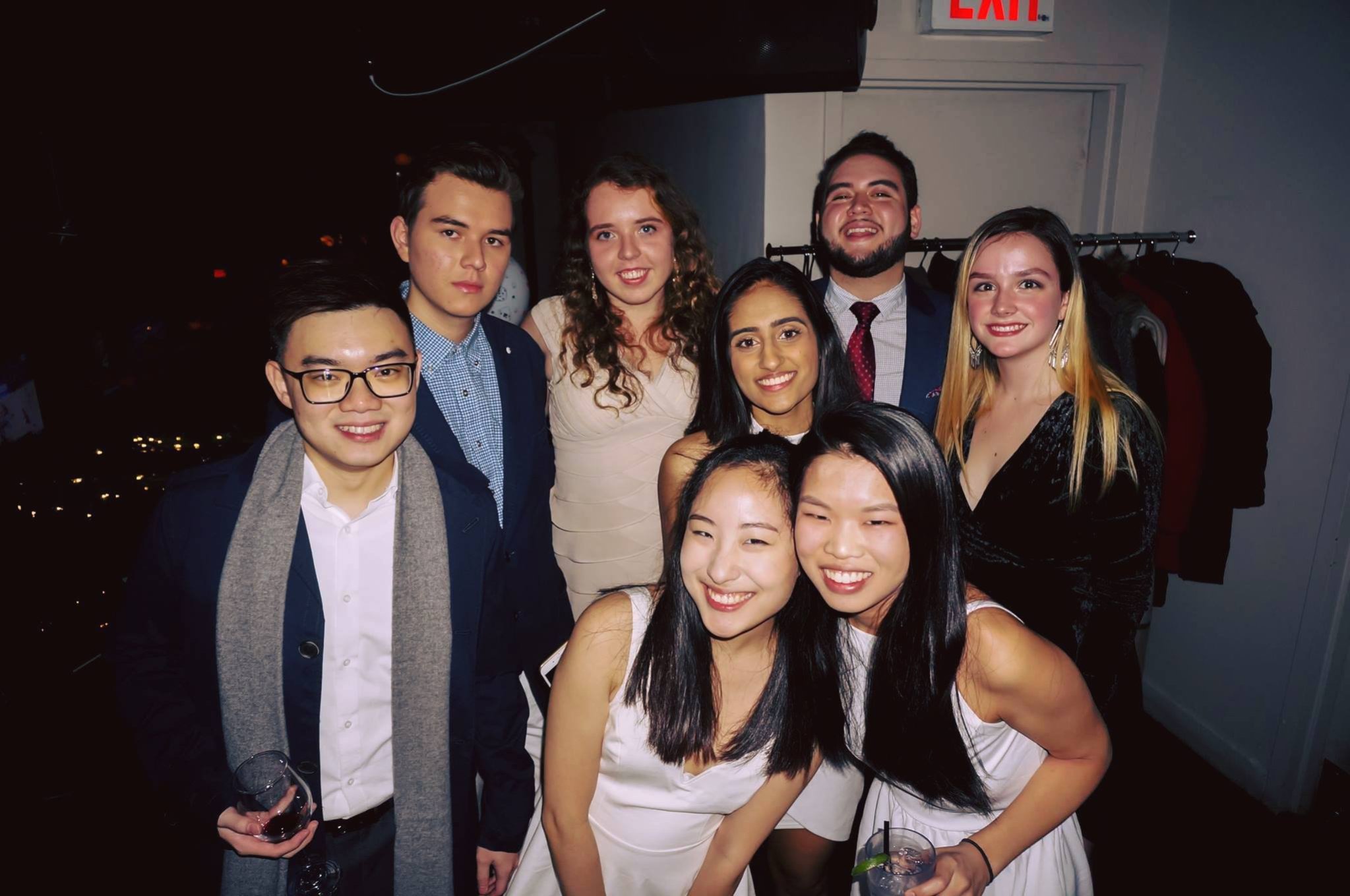Eric Wong Chin-shing is a College of Business undergraduate studying on the Joint Bachelor’s Degree Program in Business Economics with the Columbia University School of General Studies, and is currently in New York City. Here he writes about his learning experience at ColumbiaU.
Seeking for a new mindset
My vision of studying in America came to me after a banking internship for my freshman summer. I was amazed by the disruptive change in the traditional retail banking landscape, with bank tellers rapidly replaced by machines and paperwork transformed into mobile. I felt an urge to build a new mindset, and I realized that there was no better place for ideas exchange than the United States. Knowing that CityU provides students with the opportunity to study at Columbia University, I decided to challenge myself to apply for the programme and eventually I was lucky enough to get the chance to further my study in a whole new world.
Redefining language and culture
As a homegrown Hong Konger who has been through the traditional public education system, a transition to studying in the United States was not completely smooth and easy. One of the challenges was the language barrier. My life in New York City taught me an essential lesson that language is more than grammar and vocabulary. Instead, it is a carrier of culture and identity. I quickly realized that better English skills would be the priority to integrating into American culture. To tackle the frustration of language barrier, I started to participate in the weekly Toastmasters Club at Columbia, an international organization to train up public speaking skills. Opportunities for on-stage speaking continually pulled me out of my comfort zone, and confidence improved by the day.
I was also introduced to a new concept of fraternity, a.k.a. “Greek life". Fraternities are very common in American universities. They are social groups embracing close bonding among brothers, common values, and rituals. They are called Greek life because all the group names are composed of Greek letters. For example, I have been a member of Alpha Kappa Psi (ΑΚΨ) since the first semester. This was a transformational experience where I was exposed to the social and professional side of America. For example, the concept “social fit” is emphasized across student organizations and workplace environments. American culture focuses a lot more on personalities and the ease of being with, while abilities and calibre are seen as being less important as they can be trained up later.
There was a quote from the movie Martian which struck me. “You solve one problem, and you solve the next one, and then the next. If you solve enough problems, you get to the destination.” I can honestly say that the first six months in the United States have been a quest for solving problems. However, I have learned to stay focused and tackle problems patiently. Sometimes life may act against us, but if we keep working on ourselves bit by bit, I consider that no constraints are unbreakable, and it is always the small accumulative improvements that keep motivating me to go forward.
New connections
I think that the essential skills of the 21st century are the ability to pick up knowledge quickly in unknown areas, with a combination of solid technical skills. Knowing that coding has become an indispensable skill, I decided to challenge myself to take a Python course in the first semester. Without any computer science background, the beginning was a bit challenging given that there were six projects and three midterms in the course. However, while the coursework was a bit demanding, it was indeed intriguing and challenging. One of the captivating elements of the course was implementing Python in cross-discipline contexts, for example, using Python to build up a Black-Scholes Option Pricing Model to price financial derivatives.
This vigorous learning experience has taught me one valuable lesson: All subjects are to some extent interconnected, and mathematics is the universal language. To study better, finding the correlation between things is always a rule of thumb. It is beneficial to build up a personalized learning system to structurally absorb new ideas in the college years. I believe the advantages of knowing how to learn in our most desired way can have a decisive influence on our life-long development.
Manifest Destiny
I was introduced to the concept of Manifest Destiny in my first history lecture at Columbia. The idea was developed in the 19th century and suggested that the United States was destined by God to expand its dominion and spread democracy to the western part of the continent. Manifest Destiny accurately reflects my thoughts on American culture: the inherent natural confidence to speak up and challenge the paradigm. Not only do students at Columbia ask questions intensely during lectures, they also sometimes protest on campus for their own genuine beliefs. The virtues of actively advocating and accepting others’ ideas at the same time remind me of the Chinese proverb “ 不卑不亢 ” which means striking a balance between humbleness and arrogance.
I am inspired by my peers’ dedication and commitment to follow their visions in spite of the academic workload and expectations from society. As Steve Jobs put it, “The people who are crazy enough to think they can change the world are the ones who do.” Why don’t we escape from work, take a deep breath, and review our responsibilities and obligations as university students, scholars, and civilized citizens? My Columbia journey so far has taught me a remarkable lesson: be bold and stay confident. No matter how insignificant the changes may seem to be, we should always believe in our ability to make a difference.



